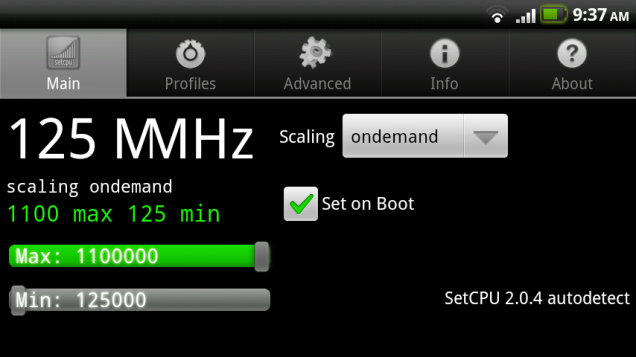How to Speed Up, Clean Up, and Revive Your Android Phone
How to Speed Up, Clean Up, and Revive Your Android Phone
We're all decluttering our closets and basements in celebration of spring, but it's time for a break. Kick back on the couch, pull up your Android phone, and act like you're still being productive by giving it some spring cleaning of its own.
Reclaim Drive and SD Card Space
Most Android devices have two different storage spaces: your internal space (where apps are stored) and your SD card (where your music, photos, and many of your apps' settings are stored). The SD card is easy to clean up—just delete any music, photos, and videos you don't need. If you see any folders that look like settings for apps you've removed, you can delete those too. If you're rooted (which is really easy to do), you can even use an app like previously mentionedSD Maid or the root-free Clean Master to clean up all that cruft for you.
Cleaning up your internal storage is also pretty simple: just uninstall unnecessary apps. Chances are you have a few apps you don't use anymore, not to mention games you don't play—they'll take up the most space—and you can just uninstall them from the Play Store to free up that space and, hopefully, speed up your phone a little bit. If your phone is starved for internal storage and you can't spare any of your hard-earned apps, you can try moving them to your SD card instead (at least, if you're running Android 2.3 or earlier). This will free up that internal space and speed up your phone, but keep all your apps close at hand. To do this, just head to Settings > Applications > Manage Applications. Select an app, and tap the "Move to SD Card" button to move it. Some apps won't have this ability, but you should find that lots of your space-hogging apps have no problem living on your SD card. You can read more about this process here.
Of course, if you don't have an SD card in your phone, you'll just have to delete files and uninstall apps if you're running out of space.
Give It a Battery Boost
Lots of Android phones are notorious for sucking battery life quickly. If you haven't dug through your settings in awhile, this is a good time to make sure you're getting the most out of your battery as possible. This means turning the brightness down, the Wi-Fi and Bluetooth off when not in use, and turning off any eye candy (not to mention uninstalling apps that constantly use up your data). Tweak these settings yourself or automate them with a program like Tasker or JuiceDefender for an easy, hassle-free battery life boost. I'm always an advocate of getting a second battery, too—just keep it in your glove box or in your desk drawer for those emergencies where your phone is about to die.
Speed It Up with Some Settings Tweaks
If your phone is a bit older, or it's just feeling sluggish, there are a number of things you can do to make it feel a little smoother. Trying a new home screen launcher is always good for a bit of speed, as is lowering your number of home screens and ditching all those widgets. If you'rerooted, you can even overclock or install a custom ROM for even more speed. And, if you really want to get technical, there are some advanced settings you can play with to eke every bit of speed out of your phone possible. For more info on how to speed up your phone, check out our in-depth guide. Just don't use a Task Killer, whatever you do (unless you're on a really, really old version of Android—like, 1.6 old).
Remove and Clean Your Case (If You Use One)
Of course, the inside of your phone isn't the only thing that needs cleaning. If your phone has gotten a bit dirty over the past year—which is even more likely if you have a dirt-trapping case on it—you might want to take it off and clean it up. The case shouldn't be too hard to clean, but make sure you don't clean your phone with anything that'll harm the screen. We've gone through how to safely clean and disinfect your gadgets before, so check out that guide for more info.
Unfortunately, Android devices are finicky, and can take a lot of maintenance to work well—especially the older ones. Be sure to check out our more in-depth guides above, and you should be able to get your phone running as optimally as possible. Got any maintenance tips we left out? Share them with us in the comments below.














0 commentaires :